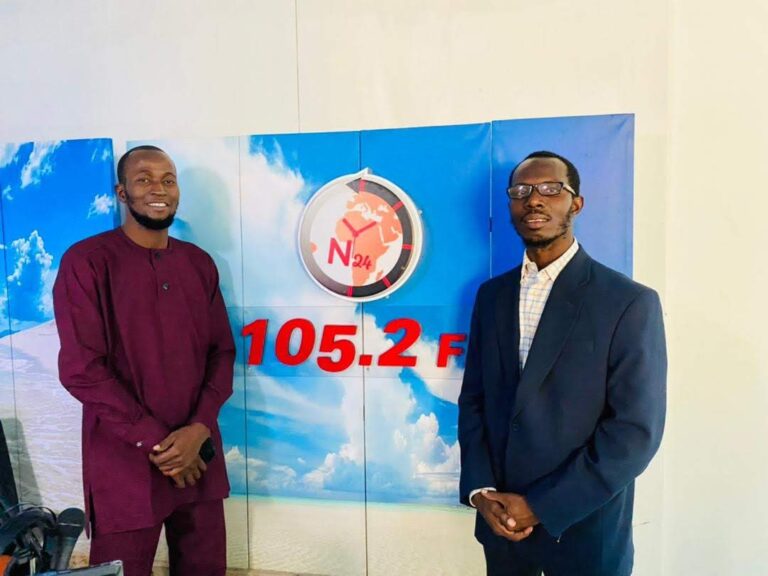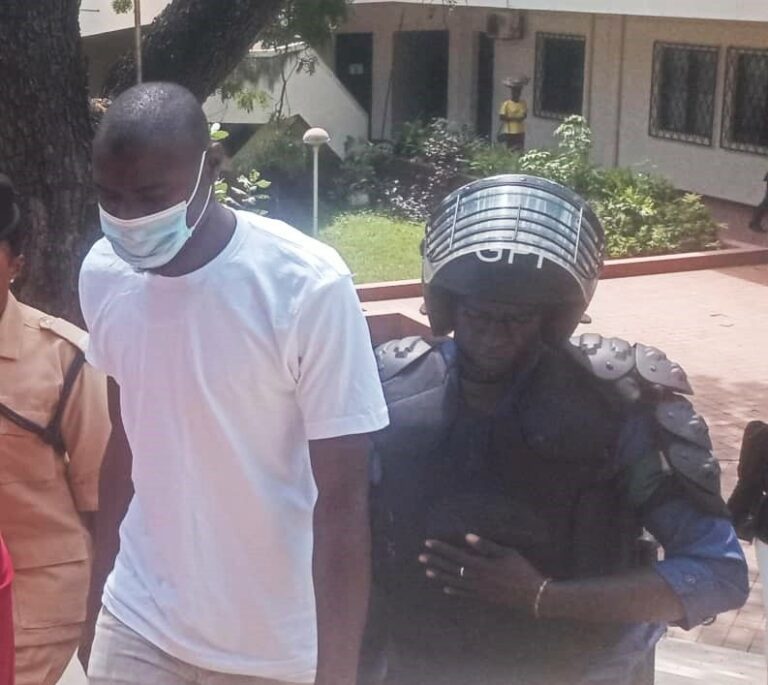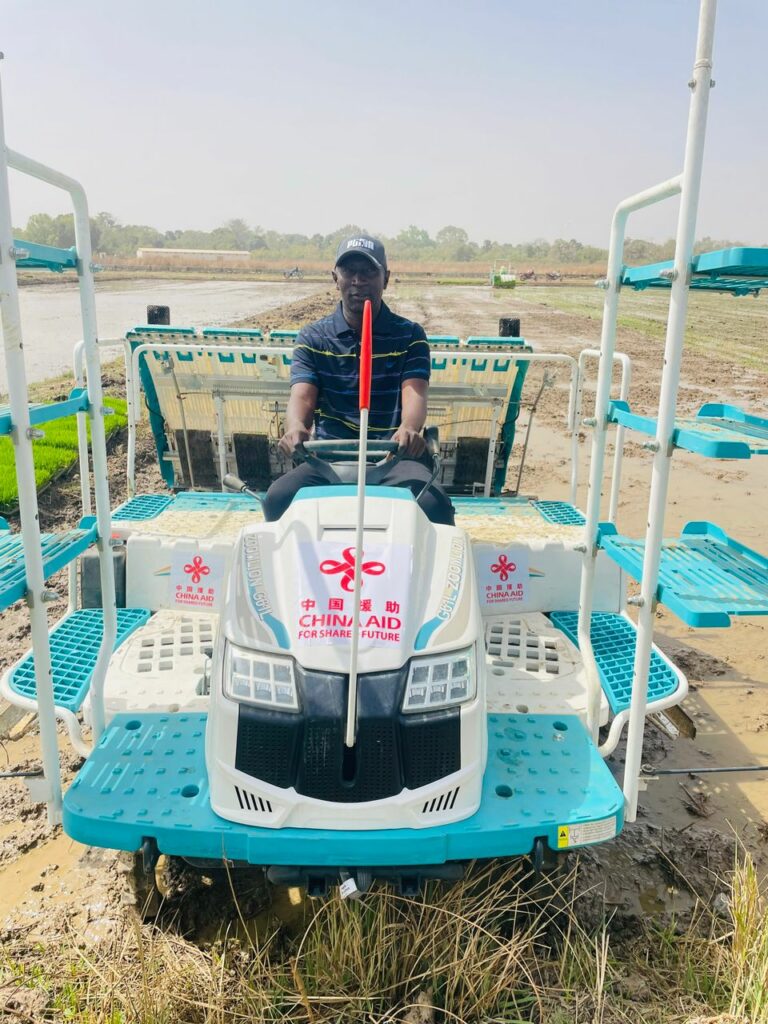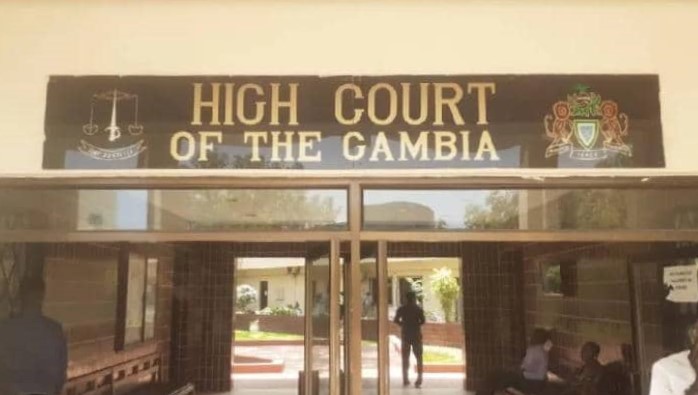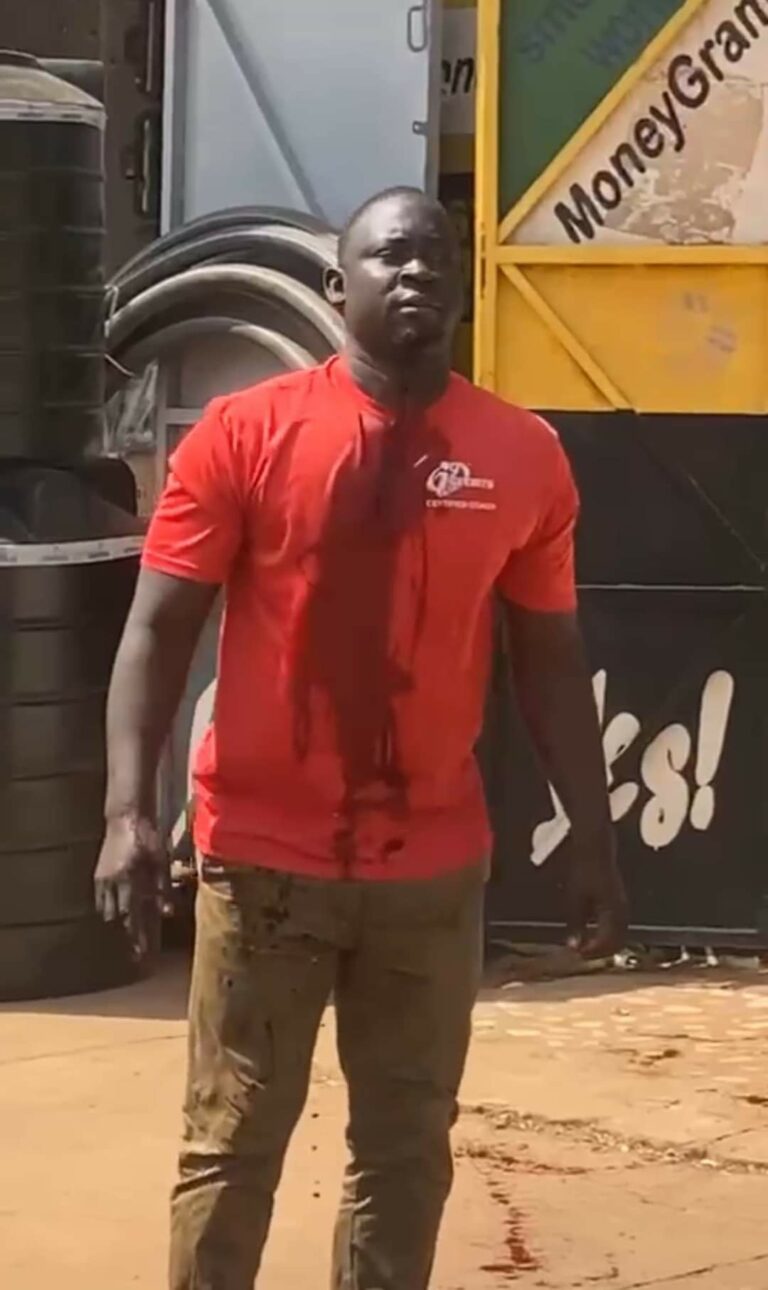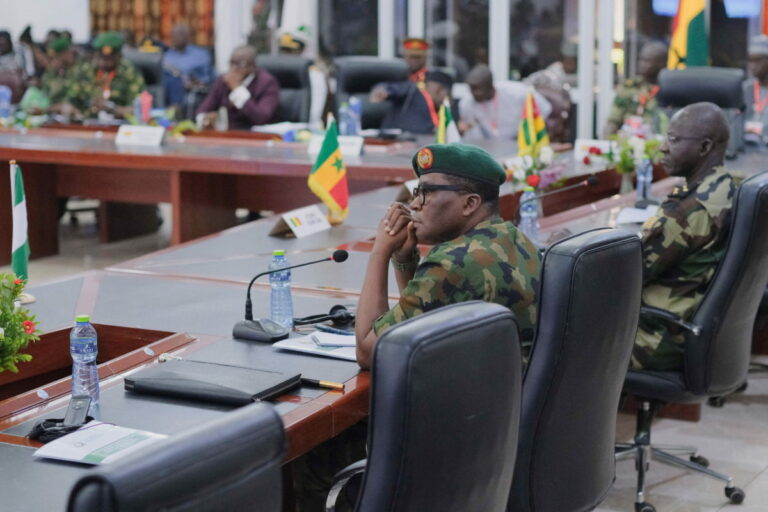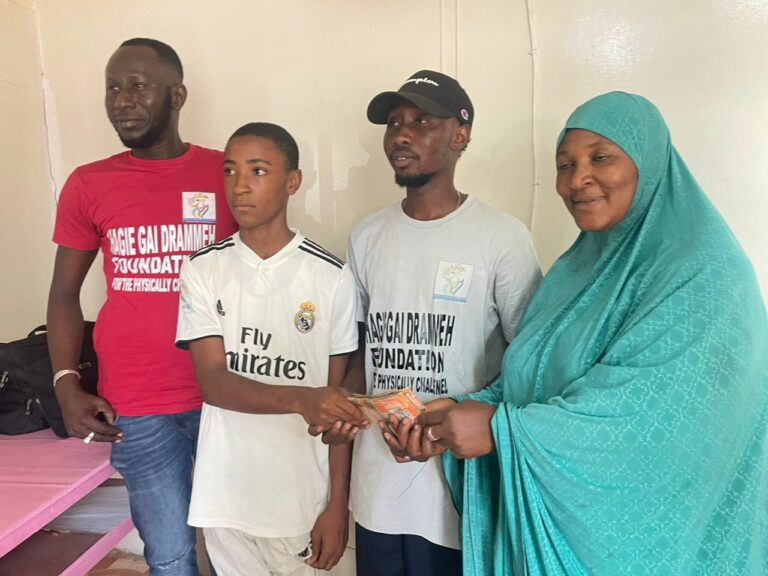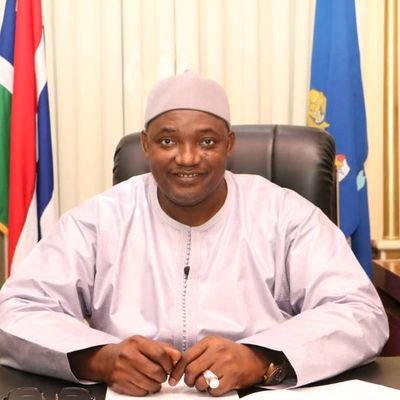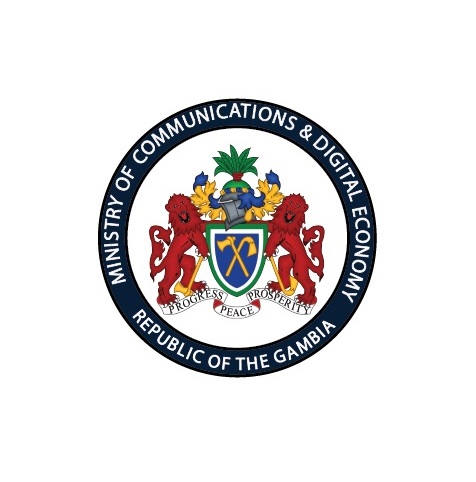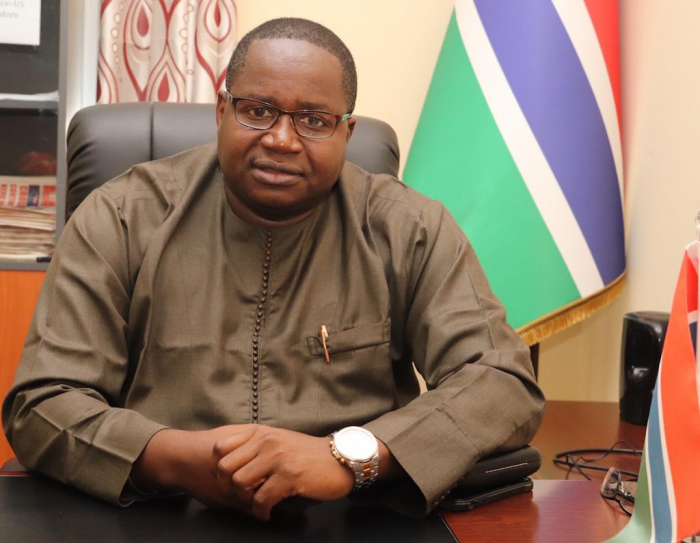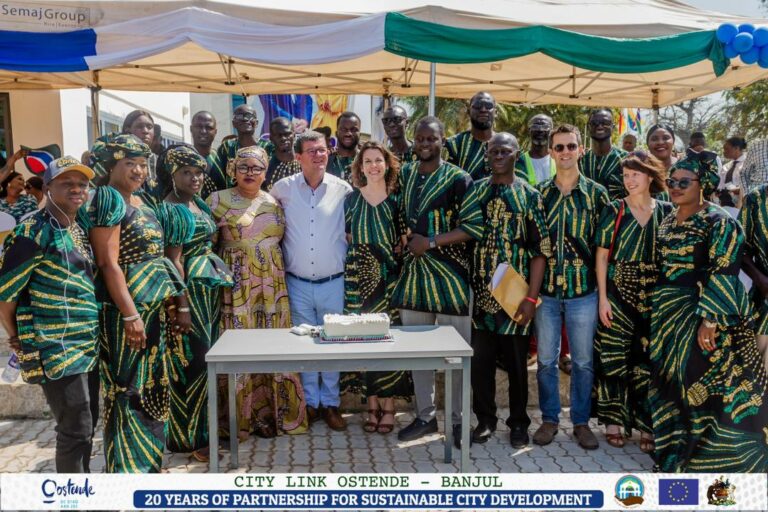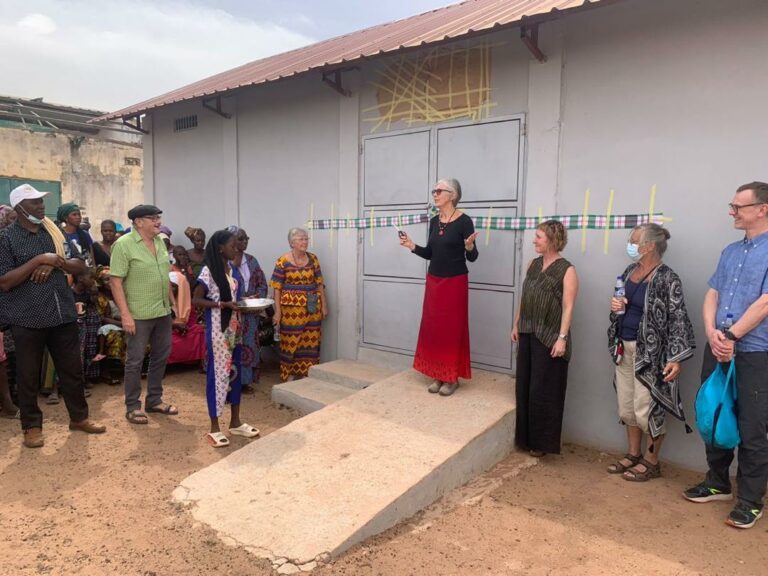By Modou Lamin Joof
In a society where issues surrounding sexual gender-based violence (SGBV) and mental health are often swept under the carpet, one influential women-led advocacy group is taking a stand. Meet “Ask Bajen Community Advocates,” a dynamic initiative created by the PF-Initiative, formerly (Paradise Foundation), which aims to address the deep-rooted issues of SGBV in The Gambia and advocate for improved mental health in communities nationwide. This comes in the face of societal and political pressure. The latter was demonstrated by recent calls by several National Assembly Members to repeal the country’s anti-FGM laws. Such pressures have the potential to push these important issues into the background. Let’s dive into this empowering movement that has already shown promising results.
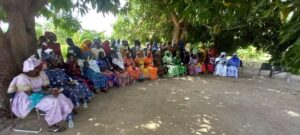
The Vision Behind “Ask Bajen”
The Ask Bajen women-led advocacy program is a response to the pressing issues of SGBV and mental health in society. Comprised of 40 women from each region, “Bajens” serve as a support system and entry point for women and adolescent girls in need of information, support, or a listening ear, whether they are victims of
domestic and sexual gender-based violence or not. Additionally, Bajens mediate in marital disputes and work towards reintegrating SGBV survivors with their families.
Aisha Baldeh, Executive Director of PF Initiative, “the PF-Initiative began with the establishment of the first National GBV Helpline, ‘1313,’ in collaboration with the Ministry of Gender, Children, and Social Welfare, where individuals can report cases of gender-based violence. A women centre in KM was also created to support survivors. The program then expanded to create the Ask Bajen TV show, which allowed for deeper connections between the Bajens and individuals seeking support, surpassing the effectiveness of social workers. This success prompted the expansion of Bajens across all regions, resulting in numerous success stories. Cases requiring mediation were successfully resolved, while others necessitating further actions were appropriately referred and monitored. Nonetheless, a significant challenge persists in the limited prosecution of Sexual and Gender-Based Violence (SGBV) cases, exacerbated by a prevailing culture of silence.”
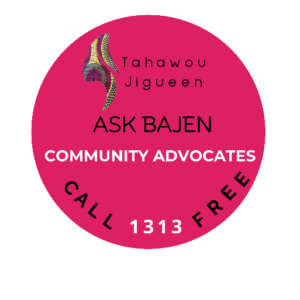
Country Context
In the Gambia, citizens rank GBV among the most important women’s-rights issues that the government and society must address. Most say that a husband is never justified in using physical force against his wife and that the police take GBV cases seriously (Afrobarometer Round 9 (2021/2023). But a majority also think a woman who reports such violence to the authorities will suffer criticism, harassment, or shaming by others in the community and that GBV is a private matter to be resolved within the family rather than a criminal matter requiring the involvement of law enforcement. Systemic challenges remain as well: While the Sexual Offences Act punishes sexual violence, it does not cover marital rape (Nabaneh, 2016; Law Hub Gambia, 2018). Accessing the justice system is difficult for many victims due to high costs and stigma, and the one-stop centres are limited by inadequate resources (National Human Rights Commission).

Creating Advocates for Change
Previously, the program had only four (4) Ask Bajens Advocates, who focused on awareness on TV and Radio programs. With support
from the UNDP Peacebuilding Project, the initiative scaled up to forty (40) Ask Bajens nationwide, who were selected and trained to advocate against SGBV and the stigma surrounding it, including discrimination against individuals with disabilities. Armed with knowledge and passion, these advocates embarked on awareness creation activities within their communities, engaging community members in discussions about SGBV, mental health, early marriage, domestic violence, female genital mutilation (FGM), and harmful substances like “Tabaa.”
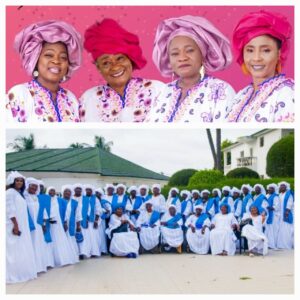
Bajen Nyima Fofana of Upper River Region shares a remarkable success story of young girls who were at risk of being forced into early marriages. With the help of the Bajens, these girls were able to remain in school and escape such harmful situations. Fofana emphasizes the need for government and donor support to enhance the work of the Bajens and empower women and children.
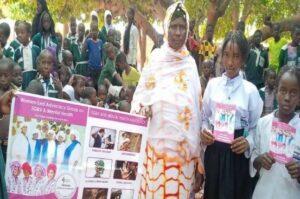
Bajen Khaddy of West Coast Region highlights the impact of the Ask Bajen initiative in addressing domestic violence within homes and giving women a platform to report their problems. Bajen Khaddy appeals for support to empower the Bajens and ensure that women can continue to receive the necessary support to safeguard their dignity.
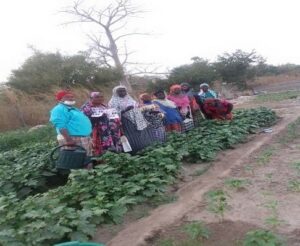
Bajen Amie Jatta Njie, representing Kanifing Municipality, emphasized the necessity to expand the number of Bajens. The
current allocation of five (5) Bajens per region is inadequate to address the needs of communities effectively. For example, in Kanifing Municipality, marked by a high prevalence of youth-related issues, substance abuse, and gender-based violence (GBV), the existing provision of five (5) Bajens proves insufficient, underscoring the urgent requirement for an increased number.
Creative Approaches to Awareness and Advocacy
Ask Bajen Community Advocates are first responders for SGBV within their communities. Their unique perspectives and experiences
contribute to raising awareness and promoting a culture of respect and inclusion within the program. To tackle these deep-rooted issues, the Ask Bajen initiative has adopted creative approaches to increase awareness and advocate for change. They launched a talk show called Ask Bajen, focused on SGBV and mental health, and
utilized traditional media and social media platforms to disseminate information and engage the public.
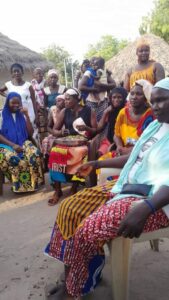
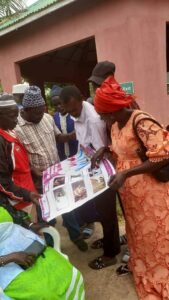
The initiative has also engaged individuals with disabilities by providing support and peer-to-peer advocacy on stigma, discrimination, SGBV, and mental health.
Engaging Individuals with Disabilities
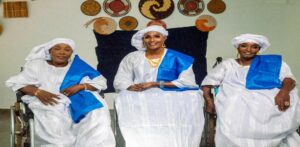
The Ask Bajen program recognizes the importance of inclusivity and ensuring that the voices and needs of individuals with disabilities are heard and addressed. Through various strategies, Ask Bajen strive to create an environment that is accessible to everyone,
including providing sign language interpreters, accessible venues, and materials in formats like braille or large print. Individuals with disabilities were selected and trained to provide peer-to-peer advocacy on stigma and discrimination, SGBV, and mental health.
Bajen Isatou Gano, representing the differently abled, expresses that the Ask Bajen initiative has uplifted individuals with disabilities, providing them with a sense of value and inclusion in society. It has also shed light on the challenges they face, such as stigmatization, marginalization, and abuse at home. Bajen Isatou believes that supporting the Ask Bajen initiative will protect the rights of the differently abled.
Overcoming Challenges and Celebrating Success
Although the initiative has made significant strides, challenges still exist, including limited access to Bajens in all communities and weak referral systems for other SGBV services. Financial support for survivors and economic empowerment programs remains crucial. Despite these challenges, PF Initiative has achieved notable successes, including launching the first national GBV helpline in partnership with the Ministry of Gender, Children, and Social Welfare. They have received over 20,234 calls and referred 1,676 SGBV cases for services.
Testimonies from beneficiaries highlight the valuable assistance provided by the Bajens and PF initiative.
“As a beneficiary of the Bajen initiative, I am grateful for their professionalism and swift action in handling my son’s case of physical abuse at his boarding school. When I attempted to remove him from the school, the involvement of the Bajens, particularly Bajen Fatou Mboge, proved crucial in mediating with the school authorities and ensuring the safety of my 15-year-old son. I cannot express enough gratitude to the Bajan’s and PF-Initiative team, for their invaluable assistance.” Modou Sowe

“Isatou Jallow’s story is a powerful testament to the impact of the Ask Bajen initiative in our society. Despite facing immense hardship after discovering her pregnancy during her grade 9 exams, Isatou found solace in the caring hands of a compassionate nurse who connected her with the invaluable support of the incredible Bajen Amie and PFI Social Workers. Through their intervention, they
bravely confronted her family, advocating for understanding and acceptance. Despite lingering anger from her mother, the unwavering dedication of the Bajens provided Isatou with emotional, psychological, and even financial support throughout her journey. With Bajen Amie’s help, Isatou not only found the strength to persevere but also experienced a heartwarming reunion with her parents”.
Without the support of the Ask Bajen initiative, all hope would have been lost for her. Isatou’s story exemplifies the life-changing impact of this organization in transforming lives and fostering unity within our community.
“Isatou Saho, a survivor of early marriage, praises the Ask Bajen initiative. She shares her own experience of having her parents arrange a marriage for her to a man abroad, and her determination to continue her education. When her pleas fell on deaf ears,she sought the help of Bajen Nyima Fofona, a Bajen in the region, who successfully convinced her parents to allow her to pursue her education”.
Isatou’s story is just one of the many incredible tales stemming from the Ask Bajen initiative, highlighting the urgent need for support and protection of girls.
Conclusion

Ask Bajen Community Advocates, the brainchild of the PF Initiative, is a powerful force in the fight against SGBV and for improved mental health awareness. Through empowerment, community engagement, and amplifying voices, they are working towards a society that embraces women’s rights, gender equality, and mental well-being. By including individuals with disabilities and addressing their unique needs, Ask Bajen sets an example of inclusivity and
compassion. Together, they are paving the way for social change and inspiring others to join their cause.

